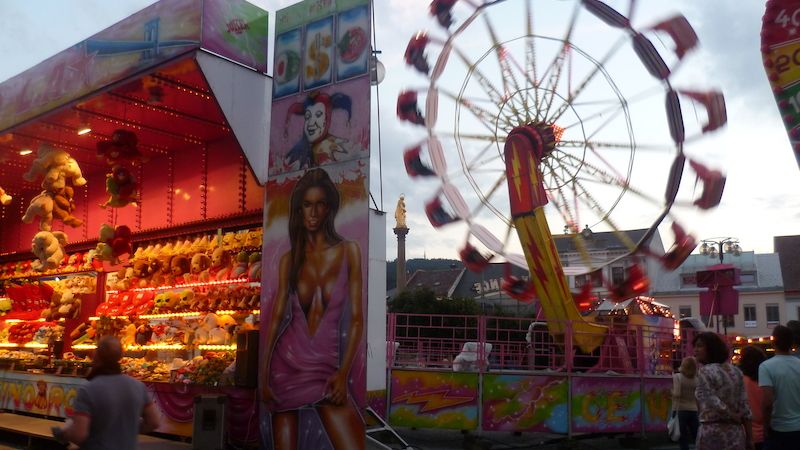Your album has a distinctively Slovak imprint. Most of the writers are from Slovakia, shot in Bratislava, you yourself sing in Slovak in one song. Why is it like this?
It comes out beautifully organically. First, the album’s co-creators and I said that we would try to make one song. Braňo Jančich sent me a Message in a Bottle and I immediately said I had to sing this song. He immediately dug into my heart.
The collaboration then continued smoothly. I started going to Bratislava more often, where we filmed and composed, and we all enjoyed it. It was a fun adventure trip.
You are the co-lyricist for the song Vzkaz v lahvi. Is that why you immediately liked the song?
I have some of my lyrics on every record, but I never send them out into the world as a single. The original text of Message in a Bottle was written by Marián Brezáni. But from my point of view, he is very masculine, my view of love and the emotions associated with him is slightly different. So I changed a lot of things in it, and the men’s songs became much more fragile women’s songs. I then participated in the lyrics of other songs and collaborated on the music for other songs.
Láskovéty’s album is monothematic, the motive is love. It is so?
I always love listening to Maria Rottrová and Lenka Filipová. They both sing about love all the time and it is a balm for the soul. And this album of mine is about love. Sometimes it’s about what’s forbidden, sometimes about what doesn’t work, and what’s to come. There are various feelings associated with love in the recording.
At the end, poetry, music, and fiction most often revolve around love. It didn’t matter if it was a story set in war, today or another era. I love to sing about love and I felt that I should sing it.
Photo: singer archive
Lucie Vondračková
How many of your personal experiences with love are imprinted in the lyrics of the new album?
Every record I release is a reflection of what I was going through at that time. So my album can be seen as my diary. I don’t like to talk about my personal life, I don’t even do it on social networks. So the only possible place to find some information about him is the lyrics of his songs.
So if tabloid journalists, who like information about your privacy, read your texts, will they learn more than they could have discovered through their own activities?
Maybe yes, they will definitely have a better and clearer map of my life. But their mistake was that they separated my art world from my private world.
Love has been sung many times in the song. Isn’t that already boring?
At first, I avoided the topic of love in my songs. I released my first album when I was thirteen and while we were working on it, I told my mother, Hana Sorrosová, who wrote most of the lyrics, that there was no love in it. That was until I was twenty-one, when Manon’s record was set. The next album May Day was more rock, there wasn’t much love in it either.
But then I told myself that I would step into it and not be afraid to mention the things I went through. As a result, my lyrics have become more personal. First time on the album Boomerang from 2005. It is a breakthrough in this regard.
But when you sing about love, you will be kicked out by critics who take love as superficial and find it childish to sing it. On the contrary, I think it is a great courage. And I will not return to my lack of courage.
Photo: singer archive
Lucie Vondračková
In the new album, there are two words that have no fixed place in the Czech language, the phrase love and hold on to sin. The first is in the title of the album, the second is in the lyrics of the song I don’t have to go to heaven. Where did she come from?
Love quotes are words you won’t find in a dictionary. I created it myself. I am a linguist who loves Czech, as well as the grammar of other languages. I’m strict when it comes to lyrics and everything to do with language. I like to invent new words because I think they are part of the evolution of language. Love quotes are an example. I need to describe the feelings that surround me.
The word sinproof was coined by lyricist Marián Brezáni. As we spent more time together in the studio, he understood that I liked new words. So he came with this expression and I was very happy. This is exactly to my taste.
The Czech language has been in trouble in recent years. The inflection of female names no longer applies, words that for many years were considered colloquial entered the literary language, in short, individuality and sonority disappeared. Do you feel it?
I’m not a fan of such steps. As in English, things are simplified in Czech. But I love the softness and subtle complexity of the Czech language.
As soon as the debate started about not making the difference between soft and hard y, I was horrified. At the same time, I find this very interesting and funny in Czech. Yes, it’s complicated, kids struggle with it at school, but it’s Czech and they have to learn something.
Which lyricist do you respect?
I will live in Slovakia on leave. Years ago, Kamil Peteraj captivated me with his text work. We first met in the studio about twenty years ago. We met again during the recording of my new album and I had stage fright. He wrote two beautiful lyrics for me and came to the studio to record. He wrote for so many great musicians and suddenly he was spending time with me.
I was nervous, I felt like I was filming the first song. But again, great people and legends proved to be humble people. They are firm, but very understanding.
The 80s pop influence can be felt in several songs on the album. Do you have a relationship with him?
I’ve always loved 80s songs. In the 90s, he faded a bit, especially on the dance track. That’s why I go back to the 80s throughout my career, and it’s interesting that it’s trendy now, so to speak, because so many other people are doing it in the world and in our country. I’m glad that what was considered negative a few years ago is modern today.
But you also have a relationship with dance music.
You know, I love to dance, so I want each of my albums to have three or four songs that can dance. But I also like folk, which I also touch on every album, even if only briefly. In Láskovéty, it happened in the song Honza, which we recorded with the band Kandračovci. Each of my recordings may be too much style, but I can’t help it.
Photo: singer archive
Lucie Vondračková
We are going through a time when there are no concerts. Did you lose it?
We all have to adapt to it. From my point of view, I say that if I am often reproached by critics for singing, acting in films or theater and dubbing instead of concentrating on one thing, now helps me to survive.
If I had followed that advice and kept on singing, I might have been in trouble for the last two years. With dubbing, which I love, making movies and doing what’s allowed, I survived. But I miss the audience at the concert.
Does this expansive artistic life fill you?
Very. I find that when a person burns something in his work and does too much, he goes into a cycle and can get burned. I experienced it myself.
Now I have a warning light inside of me telling me I’ve gained too much in one area. I can relax by doing something else and get the strength to look forward to working again. It cannot be done without joy.
When did you experience burnout?
At one time, I played thirty theater shows a month. I got to a stage where I didn’t really know who I was anymore. My voice started to fade, my body stopped listening to me and told me to stop. I didn’t listen to it for a long time, but I finally gave in. Now everything is fine again. I enjoy everything I do.
You may find it useful on Zboží.cz:

“Unapologetic social media guru. General reader. Incurable pop culture specialist.”







